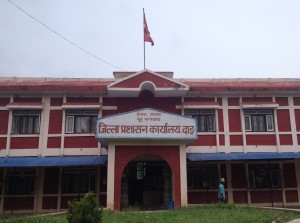-Arun Panthi, Children Rescue Committee-District Development Center
Every morning at 9, I make my way to BASE’s regional office. The unpaved road, ladies in kurtha surwals making their way to the communal well to collect water and grocery shops that sell everything from shampoos to biscuits make me feel at home. Amidst the buzz of Tulsipur, BASE’s impact on the community and its role in mobilizing especially women and youth is immediately visible. Three other women make the journey with me to an organization that has been a pioneer to giving a voice to many marginalized communities and is expanding its work to creating alternative energy sources in different districts (Kanchanpur, Kailali, Dang, Banke, Salyan, Rukum and Surkhet). While BASE has made its mark as one of the most prominent agents of social change in these societies and homes, there are obstacles that hinder the impact that it could have had-especially in the case of ending bonded child labor.
What is the issue? Why is it taking such a long time to rescue the victims of modern slavery? Why has the criminalization law become a sad joke? After a series of meetings with the Chief District Officer, Women’s and Children’s Development Center’s Supervisor, and a few other high level government officials from the District Development Committee, we were able to narrow down one issue that seems to be the major deterrent in allowing the crime of children’s labor exploitation to continue-the lack of rehabilitation for the rescued.
“We rescued four children from a hotel in Makwanpur, and were able to provide rehabilitation and education to them. Eleven NGOs mentioned the impact on their Annual Reports. When the news was published, newspapers stated that forty four children (11 NGOs x 4 children) were rescued. The fault lies in the superficial work. Nobody wants to deal with the root cause.”
-A government official (asked to remain anonymous)
Sustainability and perseverance in the effort to end the crime, providing financial independence to the parents (prior to doing so for the children) and recognizing national and international agents that are genuinely interested in unearthing the root cause of bonded child labor is what seems to be missing from many enthusiasts that aim to deal with this issue.
Posted By Richa Adhikari
Posted Jun 30th, 2014



92 Comments
Katerina Canyon
July 7, 2014
Hi Richa:
Nicely written story. You mention rehabilitation capabilities. What about enforcement? Here we have stories of lack of enforcement and forced laborers who get sent back to the same situation they were rescued from in the first place. Is this problem prevalent in your area?
Richa Adhikari
July 8, 2014
Hi Katerina,
Thank you! Yes, I came to know of some cases where that was the case, where children would go back to their employers because the situation at their homes was worse. The government official mentioned that we will not know whether the rescue and rehabilitation is truly effective until 5-7 years after the children have been found. I agree with him.
Iain Guest
July 14, 2014
Hope to see you make a very strong case for rescue and rehabilitation in the weeks to come! It will be hard to eradicate child labor, but groups like BASE can mitigate the impact!